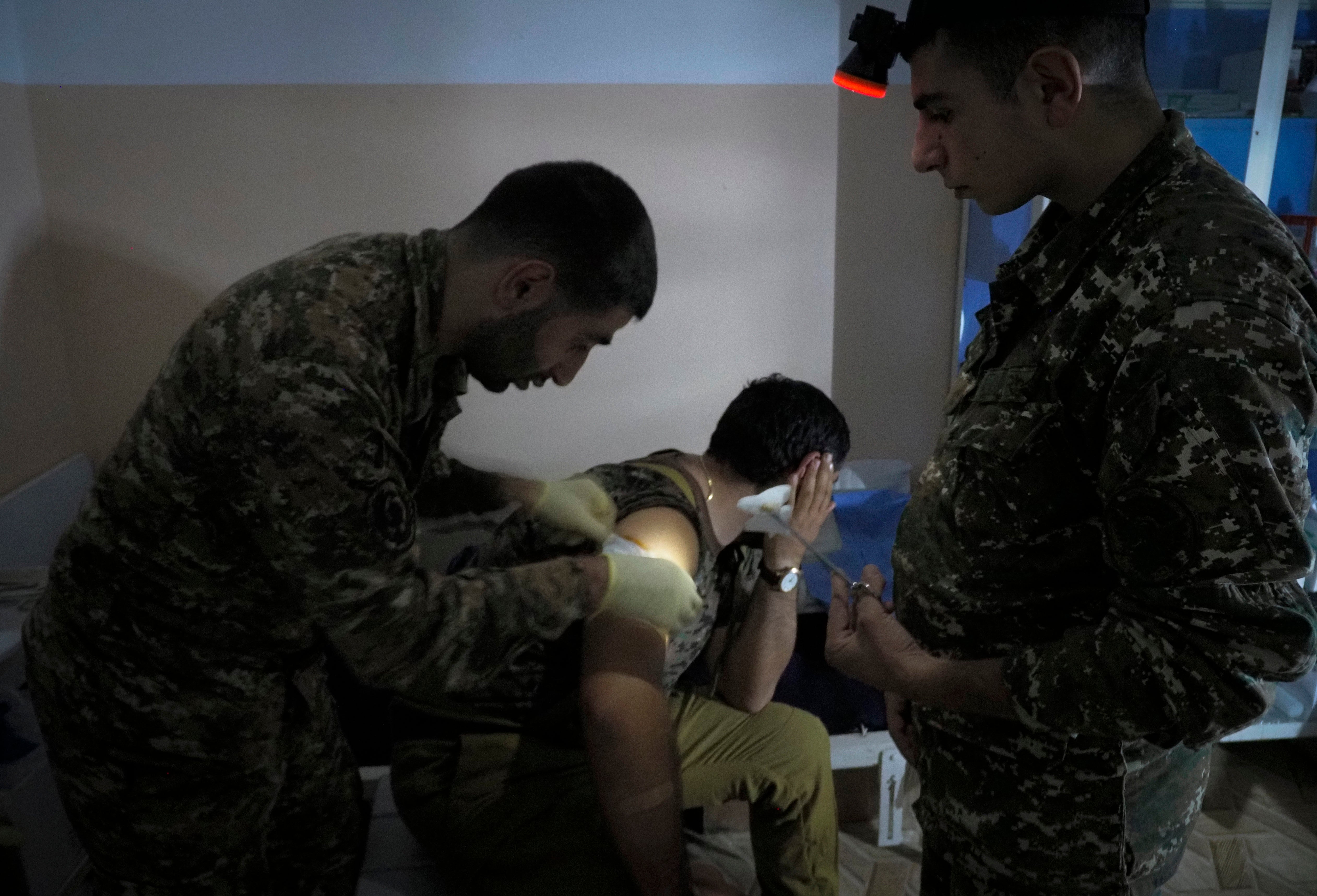Armenia, Azerbaijan report more fighting despite cease-fire
Armenia and Azerbaijan exchanged more accusations of shelling on Tuesday, with fighting over the separatist territory of Nagorno-Karabakh in its fifth week and largely unhindered by the U.S.-brokered cease-fire that was announced over the weekend

Armenia and Azerbaijan exchanged more accusations of shelling on Tuesday, with fighting over the separatist territory of Nagorno-Karabakh in its fifth week and largely unhindered by a U.S.-brokered cease-fire that was announced over the weekend.
The Armenian military accused Azerbaijani forces of firing at Armenian border guard positions on the country's southern border with Iran. “The Armenian side has already retaliated,” Armenian Defense Ministry spokeswoman Shushan Stepanian said.
Azerbaijan's Defense Ministry rejected the statement as “false and provocative." It in turn accused Armenian forces of shelling the Azerbaijani town of Terter and surrounding villages, and targeting areas of the Zangilan region with mortars.
Nagorno-Karabakh officials also reported clashes in several sectors.
Both Armenia and Azerbaijan blamed each other for violating the truce that took effect Monday.
The cease-fire was agreed upon Sunday after talks facilitated by the United States and came after two failed attempts by Russia to broker a lasting truce in the flare-up of a decades-old conflict. All three cease-fire agreements were immediately challenged by reports of violations from both sides.
Nagorno-Karabakh lies within Azerbaijan but has been under the control of ethnic Armenian forces backed by Armenia since a war there ended in 1994. By then, Armenian forces not only held Nagorno-Karabakh itself but also captured substantial areas outside the territory’s borders.
The latest fighting, which began Sept. 27 has involved heavy artillery, rockets and drones, in the largest escalation of hostilities over the separatist region in the quarter-century since the war ended.
According to Nagorno-Karabakh officials, 1,009 of their troops and 39 civilians have been killed in the clashes so far, while 122 civilians have been wounded. Azerbaijani authorities haven’t disclosed their military losses, but say the fighting has killed 65 civilians and wounded nearly 300.
Russian President Vladimir Putin said last week that, according to Moscow’s information, the death toll from the fighting was nearing 5,000, significantly higher than what both sides report.
Russia, the United States and France have co-chaired the so-called Minsk Group set up by the Organization for Security and Cooperation in Europe to mediate in the conflict, but their attempts to negotiate a political settlement have stalled.
The new cease-fire deal brokered by the U.S. came out of negotiations Washington facilitated over the weekend involving the foreign ministers of Armenia and Azerbaijan and co-chairs of the Minsk Group.
The group's co-chairs on Sunday announced another meeting with the two foreign ministers in Geneva on Thursday, but it remains unclear whether the talks would yield any progress.
Azerbaijani President Ilham Aliyev has said that, to end hostilities, Armenian forces must withdraw from Nagorno-Karabakh. He has insisted that Azerbaijan has the right to reclaim its territory by force since international mediators have failed.
In an address to the nation on Monday, Aliyev said that Azerbaijani forces have retaken control over several areas in and around Nagorno-Karabakh.
His statement couldn't be independently verified, and officials in Armenia and Nagorno-Karabakh have rejected some of Aliyev's earlier claims of territorial gains. However, on Monday night Armenian Defense Ministry spokesman Artsrun Ovannisian said that Azerbaijan took control of the town of Gubadli and acknowledged that Azerbaijani forces also “made advances in some directions.”
In an interview released on Monday, Aliyev once again took aim at the Minsk Group, accusing its co-chairs of not achieving results in 28 years and working on “freezing the conflict" instead of resolving it, offering “just promises, just bureaucratic procedures.”
____
Associated Press writers Daria Litvinova in Moscow and Aida Sultanova in London contributed to this report.
Bookmark popover
Removed from bookmarks